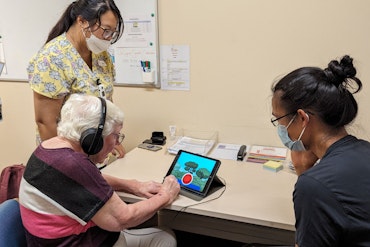How does a resident’s life shape their attitudes to aged care?
If you are a care leaver, you may now be reaching an age where you need to consider moving into a residential aged care facility.
![<p>Depending on a person’s life experience, their perspective on aged care may vary drastically, particularly for those considering residential care. [Source: Shutterstock]</p>](https://agedcareguide-assets.imgix.net/news/articles/wp/toughlife__2204.jpg?fm=pjpg&format=auto&w=550&q=65)
Depending on a person’s life experience, their perspective on aged care may vary drastically, particularly for those considering residential care. [Source: Shutterstock]
Key points:
- A ‘care leaver’ is a person who spent time in care as a child in institutional or foster care settings
- Aged care has been identified as an area of particular anxiety for care leavers given their previous experiences in institutional care
- Clients leaving care may face challenges that make them more vulnerable to experiencing homelessness
Many different factors can affect a resident’s outlook on receiving aged care at home or in a residential facility.
Some facilities or providers may specialise in assisting people from select demographic groups and accommodating unique needs, with a range of government programs available to facilitate care.
In 2021, the Australian National University Centre for Social Research and Methods reported that there was a lack of confidence in the aged care sector — an outlook supported by findings from the Royal Commission into Aged Care Quality and Safety.
Ahead of the new Aged Care Act, advocates have emphasised that a person-first approach to care must support people from a wide range of backgrounds and fundamentally change the use of restrictive practices.
For care leavers — people who were placed in institutional care or foster care — many find childhood memories return, including recollections of places where they were harmed and memories of experiences when they were abused by those entrusted with their care.
People who are care leavers, Forgotten Australians, former child migrants or the Stolen Generations may find it difficult to overcome certain triggers or feel safe in an unfamiliar setting. As such, it is important to ask providers whether they are experienced with providing care to people with similar experiences and learn about their approach to aged care.
Helping Hand, a South Australian care provider, has released an information leaflet with a series of 10 questions that care leavers should ask aged care providers when deciding to receive care.
An aged care resident or care recipient may need help if they are experiencing:
- constant headaches or stomach upsets;
- difficulty with sleeping or concentrating;
- irritability or anger;
- depression or feel emotionally distant;
- anxiety;
- bad dreams or memories of the trauma;
- a fast-beating heart, shaking or sweating when reminded of the trauma;
- an aversion to something associated with their trauma.
Care leavers disproportionately experience or are at risk of homelessness, with many Specialist Homelessness Services clients returning due to transitional difficulties between institutional settings.
Australian Centre for Grief and Bereavement — 1800 22 22 00
Dementia Support Australia — 1800 699 799
Healing Foundation for Aboriginal and Torres Strait Islanders — healingfoundation.org.au
LGBTIQ+ Health Australia — lgbtiqhealth.org.au/
Through the Australian Government Care Finders program, people who are vulnerable and may require aged care can seek support — along with housing, by getting in touch with Services Australia.
What’s your outlook on aged care and how can the new Aged Care Act boost your confidence in the sector? Let the team at Talking Aged Care know and subscribe to the newsletter for more information, news and industry updates.
Related content:
Australian Government looking for fewer quality standards in proposed Aged Care Act
Experts stress that financial help means independence for life























